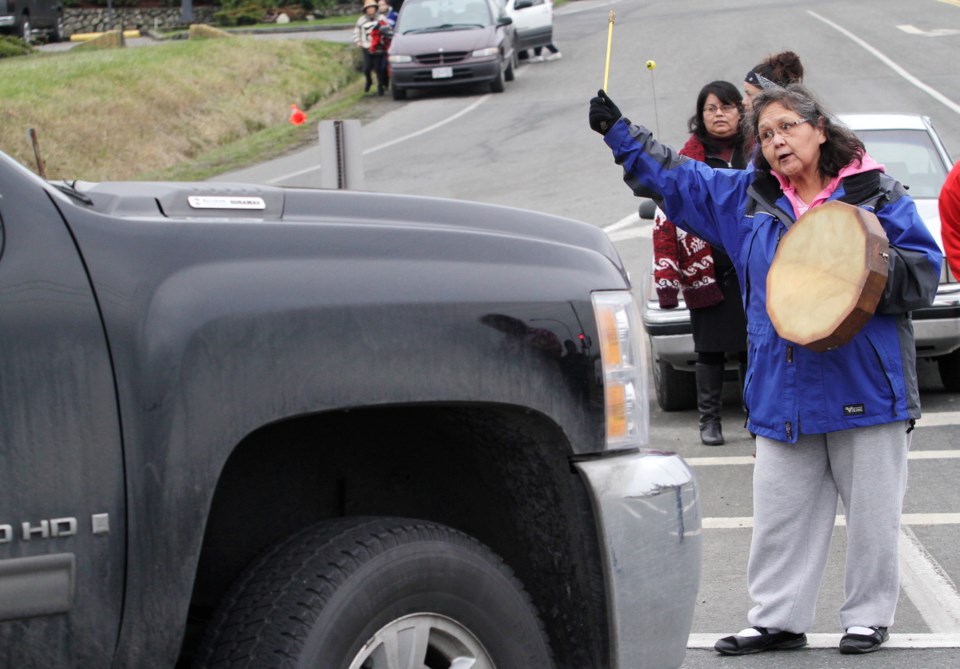Idle No More protests are the start of a larger movement that will bring together a broad cross-section of First Nations and non-indigenous communities, Union of B.C. Indian Chiefs president Stewart Phillip predicted Wednesday.
“I think people are starting to connect the dots and understand this is about a humanitarian crisis and crushing poverty in aboriginal communities, but also very much about the environment,” said Phillip, who was in Greater Victoria for the Idle No More demonstration that blocked the Patricia Bay Highway on Wednesday.
The crossover between the Enbridge Northern Gateway pipeline protests and Idle No More demonstrations show an increasing number of people are trying to defend Canada’s environment in the face of the Harper government’s omnibus bills, Phillip said.
“This is international in scope. There’s a reawakening around the world about these fundamental issues,” he said in an interview.
Speaking to the crowd blocking the highway, Phillip said like-minded Canadians are standing in solidarity across the country.
“All of us have marked this day to serve notice again to Prime Minister Harper that we absolutely reject this government’s Bill C-38 and Bill C-45 that are designed to sell out the environmental values and democratic values of this country to big industry and big oil,” he said.
The omnibus bills contain changes to more than 90 laws, including the Navigable Waters Protection Act, Fisheries Act and Environmental Assessment Act.
To cheers from demonstrators, Phillip reiterated support for Attawapiskat Chief Theresa Spence, who is refusing solid food until Harper and Gov. Gen. David Johnston agree to a treaty meeting with First Nations leaders.
Phillip said support for Spence continues despite what he called a government smear campaign to discredit her.
“Our support for her is unwavering, and we will stand with her for as long as it takes for this government to understand they must sit down with her and discuss the humanitarian crisis,” he said.
“We know this is not about public opinion. It is about doing what is right.”
Phillip shrugged off any suggestion there are fractures in First Nations leadership in Canada, although there is disagreement among chiefs about Assembly of First Nations National Chief Shawn Atleo’s meeting with Prime Minister Stephen Harper.
“It’s a very racist notion to suggest that all indigenous people should be of the same mind,” Phillip said.
UBCIC vice-president Bob Chamberlin told demonstrators that everyone must send a message to Harper that he is not above the law.
“He can’t ignore the Canadian constitution or rulings of the Supreme Court of Canada. They are fundamental pieces of something called democracy,” he said.
As the movement grows, an uncomfortable message has to be sent to Canadians and the international community about conditions in First Nations communities, Chamberlin said.
“People must understand oppression begins with the Canadian government,” he said.
After the end of the demonstration, Tsartlip elder Tom Sampson asked a question that’s on many minds.
“What next?” said Sampson, who has studied the English laws that formed the basis of Canadian law.
“The tribes know what we have to do and if [the government] doesn’t listen, it will force the tribes into an awkward situation,” he said. “We have to strike back. It’s not about us anymore, it’s about Canadians, and we have to stand up for our rights.”



